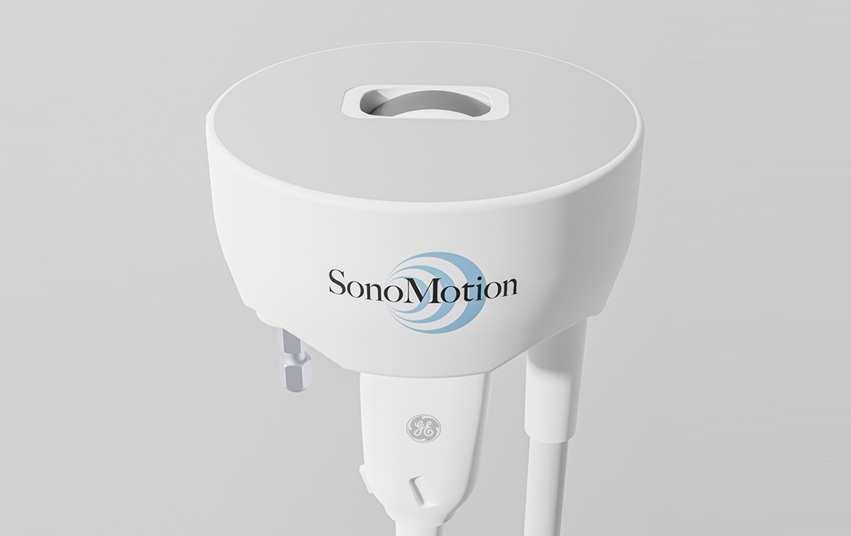Coffee, Decaffeinated Coffee, and Tea Consumption Linked to Lower Diabetes Risk
|
By HospiMedica International staff writers Posted on 22 Dec 2009 |
High intakes of coffee, decaffeinated coffee, and tea are linked to a reduced risk of Type 2 Diabetes Mellitus, according to a pooled review of studies.
Researchers at the George Institute for International Health (Sydney, Australia), the University of Glasgow (United Kingdom), and other institutions conducted a systematic review and meta-analysis investigating the association among coffee, decaffeinated coffee, and tea consumption with the risk of diabetes mellitus. The meta-analysis included data obtained from 18 studies that reported on the association between coffee consumption and diabetes; six studies that reported estimates of the association between decaffeinated coffee and diabetes; and seven studies that reported on the association of tea.
The results of the pooled meta-analysis found that drinking coffee was inversely related to risk of diabetes (more coffee was linked to lower risk). After adjusting for potential confounders, every extra cup of coffee consumed in a day was linked to a 7% reduction in the excess risk of diabetes; drinking 3 to 4 cups per day was linked to a 25% lower risk than drinking none or up to two cups per day. In those studies that assessed decaffeinated coffee consumption, drinking more than 3 to 4 cups a day was linked to about one third lower risk of diabetes, compared to none. Drinking more than 3 to 4 cups of tea per day was linked to a one fifth lower risk of diabetes, compared to non-tea drinking. The authors suggested the effect of tea and coffee consumption on diabetes risk could be due to direct biological effects, since their apparent protective effect appears to be independent of potential confounding variables, and could partly be due to other compounds present in tea and coffee, such as magnesium, or antioxidants such as lignans or chlorogenic acids. The study was published in the December 14, 2009, issue of the Archives on Internal Medicine.
"If such beneficial effects were observed in interventional trials to be real, the implications for the millions of individuals who have diabetes mellitus, or who are at future risk of developing it, would be substantial,” concluded first author Rachel Huxley, M.D., of the George Institute, and colleagues. "It could also be envisaged that we will advise our patients most at risk for diabetes mellitus to increase their consumption of tea and coffee in addition to increasing their levels of physical activity and weight loss.”
Related Links:
George Institute for International Health
University of Glasgow
Researchers at the George Institute for International Health (Sydney, Australia), the University of Glasgow (United Kingdom), and other institutions conducted a systematic review and meta-analysis investigating the association among coffee, decaffeinated coffee, and tea consumption with the risk of diabetes mellitus. The meta-analysis included data obtained from 18 studies that reported on the association between coffee consumption and diabetes; six studies that reported estimates of the association between decaffeinated coffee and diabetes; and seven studies that reported on the association of tea.
The results of the pooled meta-analysis found that drinking coffee was inversely related to risk of diabetes (more coffee was linked to lower risk). After adjusting for potential confounders, every extra cup of coffee consumed in a day was linked to a 7% reduction in the excess risk of diabetes; drinking 3 to 4 cups per day was linked to a 25% lower risk than drinking none or up to two cups per day. In those studies that assessed decaffeinated coffee consumption, drinking more than 3 to 4 cups a day was linked to about one third lower risk of diabetes, compared to none. Drinking more than 3 to 4 cups of tea per day was linked to a one fifth lower risk of diabetes, compared to non-tea drinking. The authors suggested the effect of tea and coffee consumption on diabetes risk could be due to direct biological effects, since their apparent protective effect appears to be independent of potential confounding variables, and could partly be due to other compounds present in tea and coffee, such as magnesium, or antioxidants such as lignans or chlorogenic acids. The study was published in the December 14, 2009, issue of the Archives on Internal Medicine.
"If such beneficial effects were observed in interventional trials to be real, the implications for the millions of individuals who have diabetes mellitus, or who are at future risk of developing it, would be substantial,” concluded first author Rachel Huxley, M.D., of the George Institute, and colleagues. "It could also be envisaged that we will advise our patients most at risk for diabetes mellitus to increase their consumption of tea and coffee in addition to increasing their levels of physical activity and weight loss.”
Related Links:
George Institute for International Health
University of Glasgow
Latest Critical Care News
- Battery-Free Nano-Sensors Pave Way for Next-Generation Wearables
- Imaging Technology Detects Early Signs of Cardiovascular Risk Through Skin
- New Therapeutic Approach Marks Breakthrough in Pediatric Heart Disease
- AI Model Accurately Identifies Prediabetics Using Only ECG Data
- Injectable Disease-Fighting Nanorobots to Improve Precision Cancer Therapy
- Web-Based Tool Enables Early Detection and Prevention of Chronic Kidney Disease
- Tiny Sensor to Transform Head Injury Detection
- Bacterial Behavior Breakthrough to Improve Infection Prevention in Biomedical Devices
- Implanted 'Living Skin' Indicates Internal Inflammation Without Blood Samples
- AI Tool Improves Speed and Accuracy of Cervical Cancer Treatment Planning
- Ultrasonic Sensor Enables Cuffless and Non-Invasive Blood Pressure Measurement
- Simple Change in Sepsis Treatment Could Save Thousands of Lives
- AI-Powered ECG Analysis Enables Early COPD Detection
- Soft Wireless Implant Treats Inflammatory Bowel Disease
- Pill Reports from Stomach When It Has Been Swallowed
- Wireless Sensing Technology Enables Touch-Free Diagnostics of Common Lung Diseases
Channels
Artificial Intelligence
view channelSurgical Techniques
view channel
3D Bioprinting Pushes Boundaries in Quest for Custom Livers
Chronic liver failure and donor organ scarcity leave thousands of patients at risk of death while awaiting transplantation. To help address this challenge, a multidisciplinary team at the University of... Read more
First-Of-Its-Kind Probe Monitors Fetal Health in Utero During Surgery
Fetal surgery is performed to treat life-threatening conditions before birth, but monitoring a fetus during these procedures remains extremely limited. Clinicians currently rely on intermittent ultrasound... Read moreLight-Activated Tissue Adhesive Patch Achieves Rapid and Watertight Neurosurgical Sealing
Durotomy, a tear in the dura mater during neurosurgery, can lead to cerebrospinal fluid leakage, delayed healing, headaches, and serious infections. Achieving a reliable, watertight dural closure is therefore... Read morePatient Care
view channel
Revolutionary Automatic IV-Line Flushing Device to Enhance Infusion Care
More than 80% of in-hospital patients receive intravenous (IV) therapy. Every dose of IV medicine delivered in a small volume (<250 mL) infusion bag should be followed by subsequent flushing to ensure... Read more
VR Training Tool Combats Contamination of Portable Medical Equipment
Healthcare-associated infections (HAIs) impact one in every 31 patients, cause nearly 100,000 deaths each year, and cost USD 28.4 billion in direct medical expenses. Notably, up to 75% of these infections... Read more
Portable Biosensor Platform to Reduce Hospital-Acquired Infections
Approximately 4 million patients in the European Union acquire healthcare-associated infections (HAIs) or nosocomial infections each year, with around 37,000 deaths directly resulting from these infections,... Read moreFirst-Of-Its-Kind Portable Germicidal Light Technology Disinfects High-Touch Clinical Surfaces in Seconds
Reducing healthcare-acquired infections (HAIs) remains a pressing issue within global healthcare systems. In the United States alone, 1.7 million patients contract HAIs annually, leading to approximately... Read moreHealth IT
view channel
EMR-Based Tool Predicts Graft Failure After Kidney Transplant
Kidney transplantation offers patients with end-stage kidney disease longer survival and better quality of life than dialysis, yet graft failure remains a major challenge. Although a successful transplant... Read more
Printable Molecule-Selective Nanoparticles Enable Mass Production of Wearable Biosensors
The future of medicine is likely to focus on the personalization of healthcare—understanding exactly what an individual requires and delivering the appropriate combination of nutrients, metabolites, and... Read moreBusiness
view channel
WHX in Dubai (formerly Arab Health) to debut specialised Biotech & Life Sciences Zone as sector growth accelerates globally
World Health Expo (WHX) in Dubai, formerly Arab Health, which takes place from 9-12 February 2026 at the Dubai Exhibition Centre (DEC), has officially announced the launch of a new dedicated Biotech &... Read more
WHX in Dubai (formerly Arab Health) to bring together key UAE government entities during the groundbreaking 2026 edition
World Health Expo (WHX), formerly Arab Health, will bring together the UAE’s health authorities and leading healthcare sector bodies when the exhibition debuts at the Dubai Exhibition Centre (DEC) from... Read more
Interoperability Push Fuels Surge in Healthcare IT Market
Hospitals still struggle to reconcile data scattered across electronic health records, laboratory systems, and billing platforms, undermining care coordination and operational efficiency.... Read more















